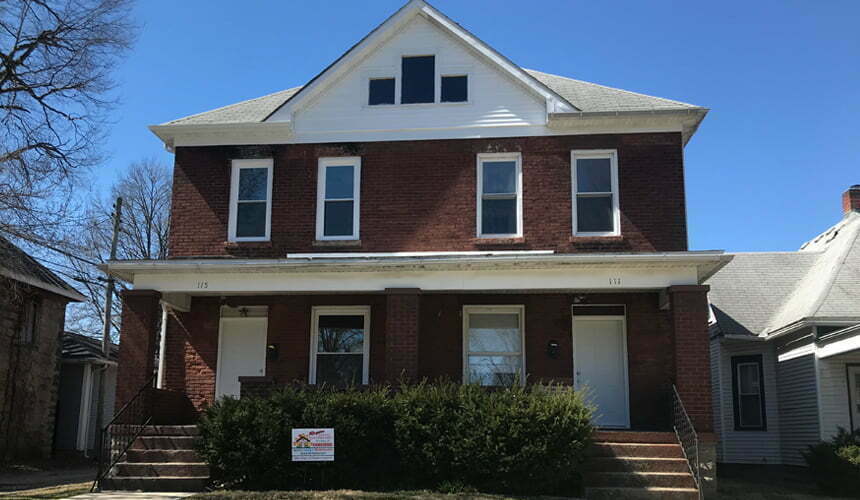

The Friendship House concept has been around for a decade, but for those in our smaller, rural city of Terre Haute, Indiana, it is both new and exciting. Beginning at Western Theological Seminary in 2007, the Friendship House model fosters community by bringing young adults with disabilities, known as Friend Residents, together with undergraduate or graduate students (typically seminarians or medical students) in community. Unlike a traditional group home model, these residents live together as roommates. This housing opportunity promotes independence, confidence, and self-sufficiency in the life of the Friend Resident, but also creates space for the Student Resident to gain new perspectives on both theology and disability that they will carry through their personal and professional lives.
Rooted in the ideas of Jean Vanier, Friendship Houses include the core values of eating together, praying together, and celebrating together. Each week, we set aside time to practice these rhythms and also take time to do it spontaneously as well. In addition to the rhythms, our Friend Residents work or have significant volunteer opportunities that tap into their God-given gifts.
With that background in mind, I want to paint a picture of how Terre Haute Friendship House began. After journeying with students and adults with intellectual and developmental disabilities in our church since 2014, we had listened to their longings and dreams and it was evident that there was much more we could do to extend love and hope into our community. Out of this desire and in conjunction with a grant we received, we began dreaming and thinking about what our next step could be out into the community.
From the outset of this project, we compiled a list of parents and caregivers of students and adults with disabilities, agencies who served those families, as well as other organizations and individuals who were or could become stakeholders in this project. In our ministry, we believe that we aren’t the real experts on disability, and because of that, we began listening to those in the local community in order to inform what our next steps may look like. As we sat down with them, we asked them about the areas of that our community excels in when it comes to serving individuals with disabilities as well as asking where the gaps exist for our friends with disabilities. We learned that transportation, employment, and housing were some of the biggest struggles that were faced by those with disabilities in our community. At the same time, we were also listening to the members of our church to discover their gifts and skills, but most importantly, what kind of service makes their hearts excited. We learned that our church has a gift for developing community and celebrating people. From these conversations, we were able to merge the needs of our community with the passions, interests, and skills of our church, and we landed at the unique opportunity to begin a Friendship House in Terre Haute.
There was one big takeaway from this part of our Friendship House journey that will continue to inform our ministry and outreach for years to come.
We learned some of the most valuable insight by simply taking time to listen to the needs of those around us and finding those opportunities that fall within our church’s giftedness. We listened to people who knew a lot about and were entrenched in the disability community, but we also listened to a lot of other people who knew about our city’s dynamics or could point us to people who would be helpful resources. As we did this, we realized that we weren’t coming into the project from the presumptuous position of pretending to know what people needed. We had done the work to gather the data to really know what the needs were.
We also saw God open up doors for additional ministry throughout this listening process. From one such conversation, we were able to connect with our local bike park, discuss accessibility, and help them secure funding for an all-terrain wheelchair. More importantly, we gauged the success of these conversations by the number of new friends we had made from our conversations and from that standpoint, this listening journey was a huge success.
We’ll pick up the story in the next blog post in this series, but I’ll leave you with this question to ponder.

